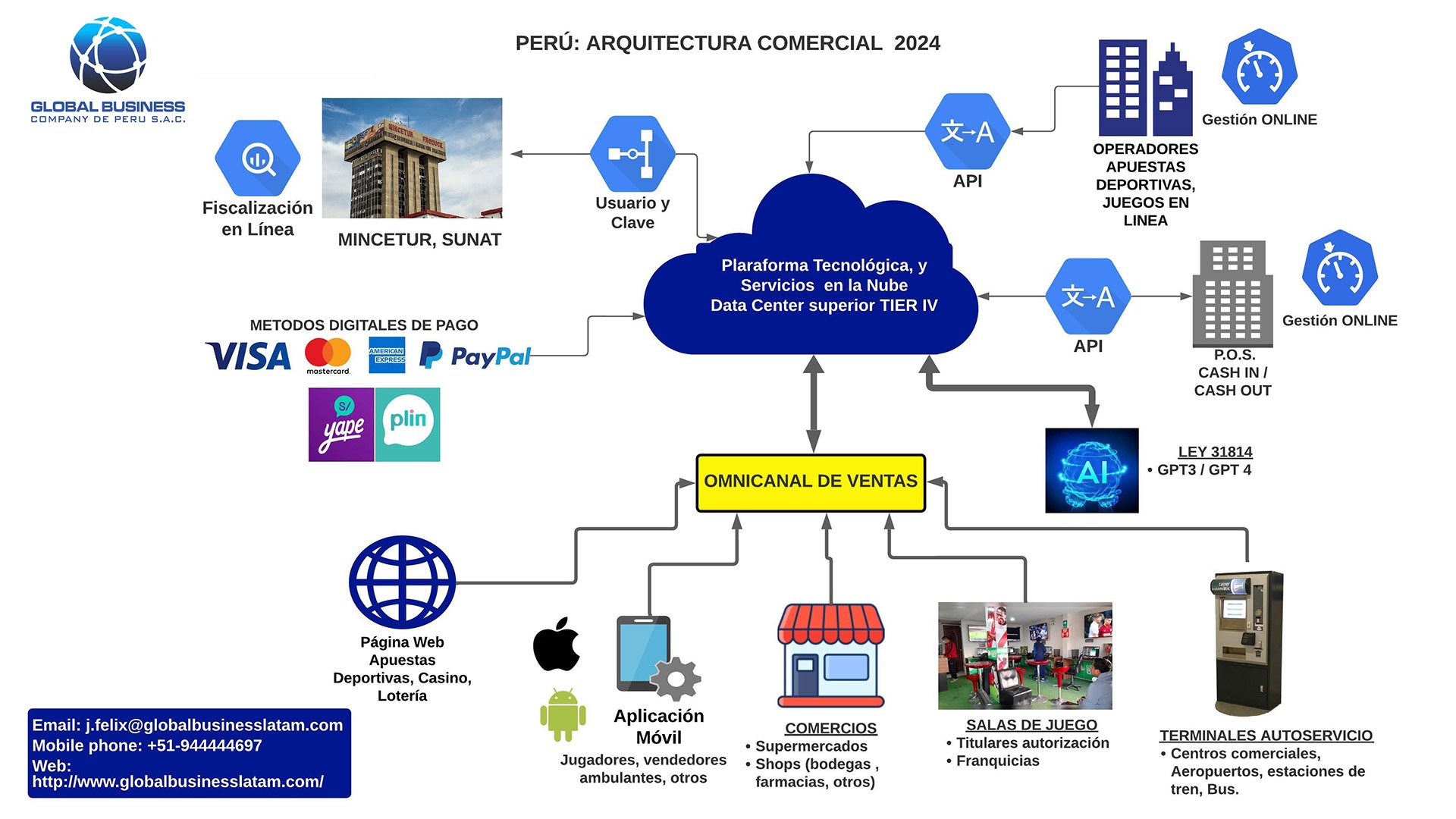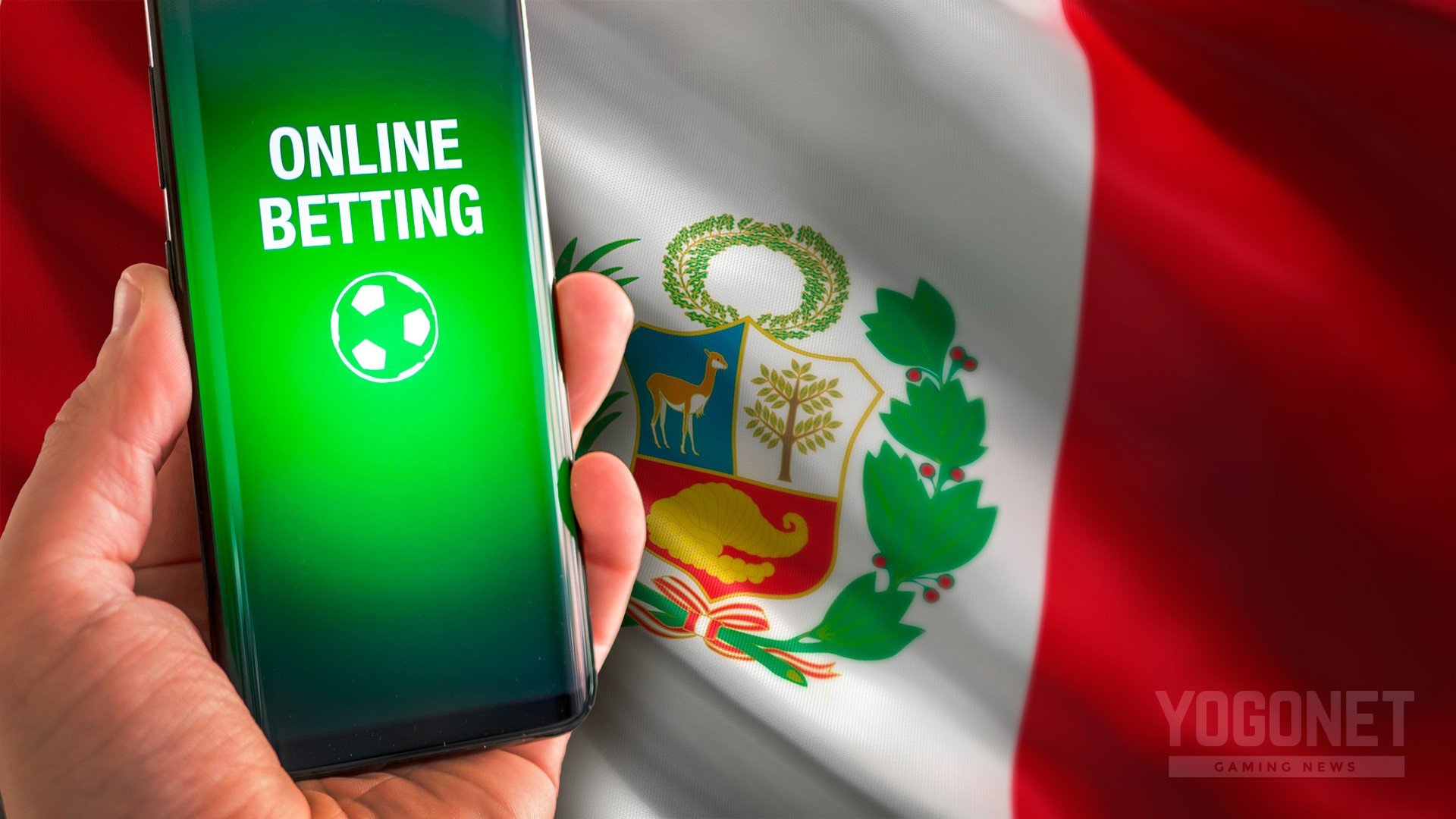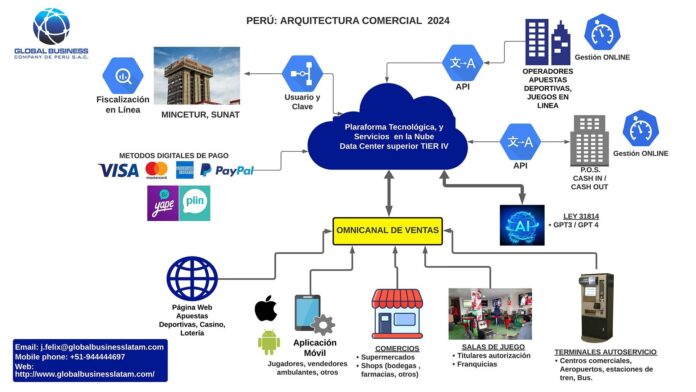The CEO of Global Business Company of Peru, Jonathan Félix Vílchez, stated that the new regulation of the law that governs the online gaming and betting sector “will promote the growth” of the sector in the South American country.
In an interview with Yogonet, the executive estimated that, from the entry into force of the regulation, which will be in February 2024, the Peruvian online gaming market is expected to “take a boost” with a view to its consolidation, “generating more sales, more clients and more revenue from exploitation rights.”
What is your analysis regarding the current moment of the Peruvian market, in which the legal framework for the online gaming sector will soon come into force?
The progress of science, technology, business, the market, and, above all, the needs of humanity, mean that end consumers are always one step ahead of any regulation. We see this reflected in the exponential growth of the virtual world and the constant change that the world is undergoing through digital transformation.
Artificial Intelligence (AI) is now a major player in human life, in all business segments. In the gaming industry, it is being used by solution developers, operators, researchers, and, surely very soon, by regulators. In the case of Peru, in July of this year, the Government enacted Law 31.814, which promotes the use of AI for the economic and social development of the country. So, I believe that the prospects for development are very promising.
In the same line of progress in science, technology, and business, there are global threats from criminal organizations, which are also at the forefront. Therefore, I believe that today the most demanding regulatory requirements have as their main objective to provide the safest possible environment in each business segment, and the gaming sector is no exception.
In the following chart, I present my vision of the commercial architecture of the Peruvian market as of 2024, which I am sure will continue to develop under a highly competitive business model that will benefit the end consumer.

What are your expectations regarding the regulation of the law that regulates the online sector?
The Peruvian market is one of the seven attractive markets in LATAM, along with Brazil, Mexico, Argentina, Colombia, Venezuela, and Chile, and it has gained strength since the enactment of Law 31.557. So, what we expect from the Peruvian market, which has shown significant maturity and sustained growth in recent years despite the COVID-19 pandemic, is that it will gain momentum to take the next step toward its definitive consolidation and transformation in the coming years, generating more sales, more clients and more revenue from exploitation rights.
This will only be possible in a highly competitive commercial scheme, which we will surely see translated into the execution of innovative commercial strategies developed by licensed operators as of March 2024.
Some players expected a pre-publication of the regulation before its official issuance. Do you consider that a previous review would have been necessary?
The world is going through a dramatic change, in general in the 21st century, in all sectors of the economy, science, technology, business, and which are increasingly focusing on a virtual world based on digital transformation. It is at that critical point that I consider the world to be under one of the greatest threats and challenges, ‘cybersecurity at all levels of man’s life’.
Therefore, from my point of view, and already focused on the gaming sector, the analysis exceeds the legal area. I consider that it is better to have a regulation with high levels of standards and technological requirements that allow to mitigate as much as possible of the possibility of fraud, organized crime, failures, sabotage, systematic attacks, identity theft, and everything that affects the final consumer and society in general, which right now is already exposed to this real danger in other business sectors, in which it has given its data.
I consider that, since the regulation has been made official, it is pertinent to analyze the best way to adapt to it to continue in business. In the last year after the enactment of Law 31,557, a broad debate and participation of all stakeholders took place and, in that time, the necessary adjustments to the law were made. Only the technical regulations were pending.
Based on what has been published, do you consider the deadlines established for brands to apply for online operating licenses to be acceptable?
I believe that the pertinent thing to do is to find the best way to adapt to this deadline under the terms and conditions already established. Perhaps operators, suppliers, and professionals already working in regulated markets around the world and here in the LATAM region will have an advantage in this regard.

From your point of view, do you believe that this regulation will contribute to the growth of the online sector in Peru?
I do not doubt it. The regulated market attracts new investors, who bring their experience from these markets, and who will succeed by adapting to the market based on their knowledge of it and the value offer they provide to the end consumer, obviously under a highly competitive commercial scheme.
What are the prospects for the online sector concerning the retail sector, and is it possible to speak of a harmonious coexistence between both industries?
The LATAM region still maintains an omnichannel business scheme, and this was reinforced due to the pandemic. Currently, we have seen throughout the region that the online channel and the retail channel (land-based) have found an important synergy and have been operating complementing each other according to the commercial strategies that each operator deploys.
In the case of the Peruvian market, what we are going to observe after the law comes into force is that the operators that were already operating will try to maintain their market share, while the new ones will seek to grow their market share.
So, in this new scenario, the retail channel (land-based) represents an important business segment in which we will probably see some changes focused mainly on franchise models since in this segment there are medium and small entrepreneurs who will seek to stay in business through partners who have an online license that will allow them to continue operating, as established by the law.
Original article: https://www.yogonet.com/international/noticias/2023/10/24/69325–34we-hope-that-the-peruvian-market-gains-momentum-to-take-the-next-step-towards-consolidation-34
















